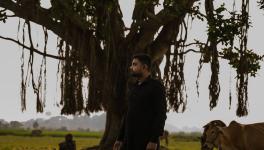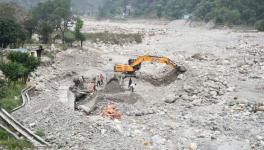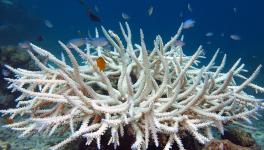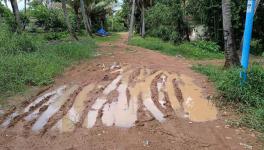Australia Lost More Mammals Than any Other Continent in Last two Centuries: Report
Image Courtesy: stocksnap
With increasing anthropogenic pressure on the environment and amidst the global climate crisis, many species across the globe are on the verge of extinction. Moreover, some species are also changing their characteristics in a trial to cope with the changing climate. Now, a shocking report has emerged recently, this time about Australia.
The State of the Environment Report commissioned by the Australian government revealed new information about the deteriorating state of the Australian environment, reiterating that the country's environment is facing further decline from threats amplifying in every aspect.
The report is a survey of the ecological system of Australia conducted every five years. It found abrupt changes in comparison to previous records.
The report says Australia has suffered more species extinction than any other continent over the last two centuries. Worryingly, the report said that as many as 19 ecosystems of Australia are on the verge of collapse. The report blamed climate change, habitat loss, pollution, mining and invasive species. It emphasised that there is a serious lack of adequate management of the crisis, which indicates more problems soon.
Australian environment minister Tanya Plibersek, commenting on the findings of the report, said in a statement, "The document paints a "shocking" and "sometimes depressing" story." She vowed to implement new policies and laws.
Since 2016, over 200 animal and plant species have been threatened, including the koala and the gang-gang cockatoo, the report revealed. It found that the largest increase among the threatened list belongs to invertebrates and frogs, while birds and reptiles are the ones that make the smallest groups to be threatened. The rate of species decline has accelerated by the Black Summer bushfires of 2019-2020. It has been estimated that between one and three billion animals got killed or displaced when over 10 million hectares went up in flames.
The report also found that the non-native plant species outnumber the native ones in Australia.
"If we continue on the trajectory that we are on, the precious places, landscapes, animals and plants that we think of when we think of home may not be here for our kids and grandkids," Plibersek said in a statement.
Notably, in recent years, Australia suffered severe droughts, unprecedented bushfires, record-breaking floods, and six mass bleaching events in the Great Barrier Reef. The report said that around $ 1.7 billion annually is necessary to revive the threatened species. According to Plibersek, the new government commits to spending $250 million on threatened species.
The average land temperatures of Australia have increased by 1.4 degrees Celsius since the early 20th century, the report found.
Jodie Rummer, a professor in Marine Biology at the James Cook University, commenting on the findings, said, "Repeated mass bleaching events is making it challenging for marine species to rebound. The increased frequency and severity of these events leaves minimal time for species to adjust over the short term (acclimation), recover from the repeated heat stress, or adapt (change their DNA over generations) over the long term."
"This is especially worrisome for key predators like sharks that have slow generation times, needing a decade, if not more, to reach sexual maturity, but are so important for ecosystem health. Every element of the ecosystem feels the heat," Rummer added.
Andrew King of the University of Melbourne and a researcher on climate science expressing anxiety over the findings, commented saying, "While Australia has always been a land of extreme weather and climate variability, experiencing drought and heat, fires and floods, human-caused climate change is causing extremes to occur more often and with more devastating impacts."
"This report should act as a wake-up call to the damage we are doing to the world around us. We must decarbonise our economy and society as rapidly as possible to try and limit the environmental losses that we will experience as we keep warming the world," King added.
Get the latest reports & analysis with people's perspective on Protests, movements & deep analytical videos, discussions of the current affairs in your Telegram app. Subscribe to NewsClick's Telegram channel & get Real-Time updates on stories, as they get published on our website.
























